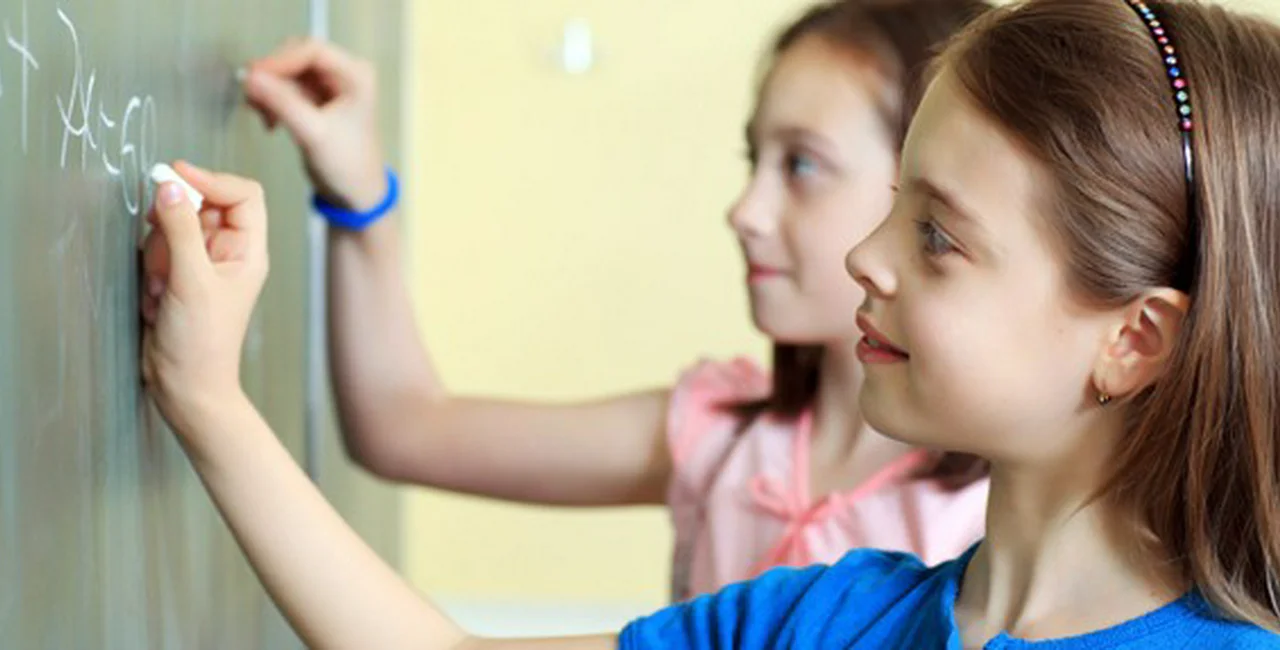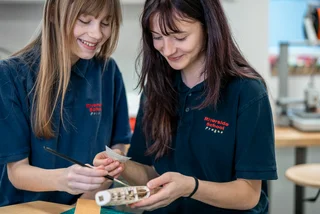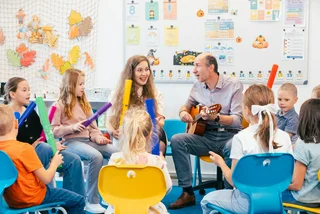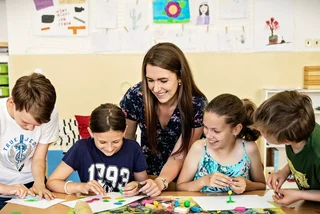For Part II covering Secondary and University Education click here.
If you have children and you live in the Czech Republic, you will want to enroll them into some type of school. Whether you’re looking for a nursery school, elementary school or secondary, there are some basic things you need to know.
Preschool Education
Nursery schools known as “jesle” or “jesličky” and they are for children up to 3 years of age. The schools come in two varieties, public and private. The public are more affordable but priority is given to parents who work. In the case of private, it can be more expensive, costing up to 10,000 CZK per month. However, some private ones offer care in English. Incidentally, there are not many nursery schools – 65 listed for the whole country on Seznam.cz.
PARTNER ARTICLE
Kindergartens or preschools on the other hand are more numerous. In Czech, they are known as “mateřská škola” (literally maternity school), usually abbreviated as MŠ. Colloquially, they are called “školka.” Preschooling is not compulsory in the Czech Republic. Preschool education is for children from 3 to 6. A class can have children from different age groups, and class sizes range from 15 to 24 children.
Admittance into a kindergarten is decided by the director of the school. The only criterion which gives a child priority for admittance is that he or she is in the final year before compulsory schooling, which starts from the age of 6. If the school doesn’t have a place for a child who is entitled to preschooling, they have a duty to ensure a placement in another kindergarten.
In order for a child to attend primary school, he or she is expected to be in the official wording “physically and mentally capable.” More specifically these capabilities mean: a child should be able to tie up his / her shoelaces, eat with a spoon, sit at the table, drink from a cup, wash his / her hands, go to the toilet alone and use a tissue. The fact that the official wording is vague suggests there could be some differences between schools.
Other deciding factors can be if the child has permanent residence in the district where the kindergarten is run; the age of the child; whether the parents work and if the child has a sibling in the kindergarten already. Kindergartens don’t have ‘catchment zones’ and it is possible to enroll your child into a kindergarten in the district where you don’t have permanent residence.
Costs for preschools vary from each preschool. According to the Ministry of Education the cost should be no more than 50% of the “actual monthly non-investment expenses”.
Certainly take advantage of the school’s open day (den otevřených dveří). You can use this opportunity to ask the director about admission criteria and costs. At this time you can enroll. Some schools may want the birth certificate of the child and / or some form of identification from the parent such as an identification card if you have one or a passport, so take them just in case.
Elementary Schooling
Elementary schooling lasts for nine years, a little longer than the US or the UK. These nine years are also the country’s period of compulsory schooling. The school year begins on September 1st and a child starts school in the new school year after the day he or she turns six. The exception is a child who turns six between the beginning of the school year and the end of the calendar year. The child can be enrolled if he or she is “sufficiently mentally and physically mature”.
For example if your child was born on October 4th 2006, she could be enrolled to have started school from 1st September 2012. If he/she were not considered mature enough, he/she would start in 2013. However a child born between or on 1st January and 31st August 2006, would start on 1st September 2012.
One of the biggest differences is that the school day is not the same each day so students will finish at different times depending on their schedule. However, check that the school also runs extracurricular activities (mimoškolní činnosti) if you are concerned about the kids being unsupervised. Schools decide how often teachers meet with parents. On average, there are four meetings per year. Children do not wear uniforms at elementary schools.
According to the Ministry of Education, there is no selection criteria for schools other than the age requirement. It is the job of the teachers to ensure that a child meets the standards expected for his / her age group.
Subjects are divided into nine fields. The more specific areas are in brackets:
- Language and Language Communication (Czech Language and Literature, Foreign Language)
- Mathematics and Its Applications
- Information and Communication Technologies
- Humans and Their World
- Humans and Society (History, Civic education)
- Humans and Nature (Physics, Chemistry, Natural Sciences, Geography)
- Arts and Culture (Music, Fine Art)
- Humans and Health (Health Education, Physical Education)
- Humans and the World of Work
A full document explaining the system in more detail can be found on this page (in English) of the Ministry of Education.
Schools have a degree of choice in how these subjects are taught, though tradition means a lot of emphasis is placed on rote learning and the acquisition of facts and knowledge. Marks are given from 1 to 5 with 1 being the best.
The school will provide material up to the value of 200 CZK per child per year. Lunch in the school canteen is paid for by the parents. Lunches typically consist of a soup and a choice of a warm meal. If your child has any allergies or dietary requirements, it would be necessary to inform the school before enrolling to see what provisions can be made.
The main holidays are during the summer from 1st July to 31st August. Other holidays are over Christmas from 23rd December to 2nd January, autumn break, which fell on 26th and 27th October last year, and spring break, which is a week off in February or March, depending on where the school is located.
According to an English woman, Jo, whose children attend basic school in the Czech Republic and were in school in the UK, the Czech approach to education at her children’s school had its benefits. She said, “At first I thought this was terrible but I’ve come to appreciate that they really get to know a subject properly.”
She also approved of the way the children were assessed. “The children are marked on every piece of work and you are given scores so you really have a clear idea how they are performing and whether you need to help them,” she said.
One downside she saw to the system here was the focus on cursive writing and the lack of more creative activities. Plus the irregular finishing hours meant that as a parent she couldn’t meet other parents as readily.
The Czech educational system does have its differences and similarities with systems outside of the Czech Republic. Nurseries, preschools and elementary schools all have their set of rules for admission and offer an alternative teaching method when compared to international schools available here. It is recommended that parents understand the rules and differences when choosing what educational institution they will choose for their child, be it Czech or international.
Click here for Part II covering Secondary and University Education in the Czech Republic.
Related articles
- Czech Teachers to Get a Massive Pay Increase this Autumn
- Czech Teachers Have the Worst Salaries In the World
- Czech-Designed 3D Heart Is Revolutionizing Classroom Learning
- Czech Republic among Best Places In the World to Teach English In 2017
- Prague among Best Cities In the World for International Students












 Reading time: 6 minutes
Reading time: 6 minutes 


















